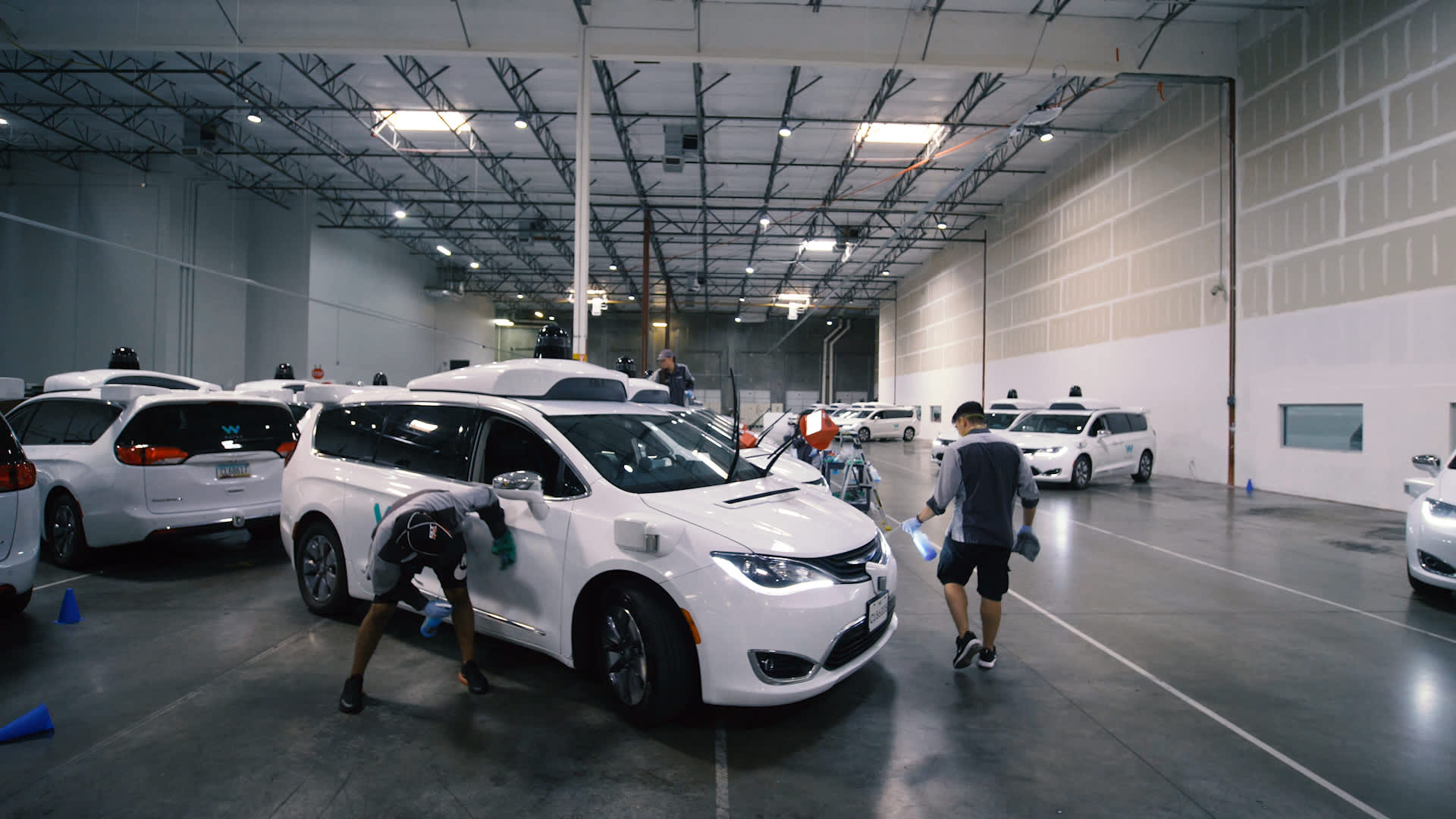
The closure of Waymo's self-driving car facility in Austin, Texas, this month eliminated jobs for about 100 contractors, some of whom described surprise at the sudden decision.
Waymo, the self-driving car subsidiary of Google parent company Alphabet, confirmed with CNBC earlier this month that it was closing the Austin facility but downplayed the move, saying it would affect fewer than 10 full-time employees.
CNBC has now learned that the closure affected many more people, including contract workers from firms Adecco and Genesis10, according to conversations with nine people who worked for Waymo in Austin and elsewhere. Five of these people estimated around 100 workers, or more, were affected. A Waymo spokesperson said the number was "significantly less" than 100 without offering a precise number, citing confidentiality agreements with the contracting agencies.
Some described the firing as a surprise, and two said that managers described it as a financial decision, although Waymo denies any cost-cutting measures, pointing to investments elsewhere. These people requested anonymity because they signed agreements that forbid them from talking about their time at the company.
A Waymo spokesperson described the move as a facility closure, not a layoff or downsizing. In a statement, the company said, "Waymo is growing our investment and teams in both the Detroit and Phoenix areas, and we want to bring our operations teams together in these locations to best support our riders and our ride-hailing service. As a result we've decided to relocate all Austin positions to Detroit and Phoenix and some of our employees have already confirmed they'll relocate. We are also working closely with our staffing partners to ensure temporary workers are offered transition pay and relocation assistance."
In the months leading up to the firings, the company has faced challenges to the business and delays to the technology. CEO John Krafcik said in 2017 that Waymo wouldn't need to wait until 2020 — when analysts expected self-driving cars to go fully autonomous — but that it would give riders fully autonomous rides within "months." However, CNBC reported in August that Waymo still largely relies on human safety drivers, and the company only started offering fully autonomous rides there recently. In September, Morgan Stanley cut its valuation on Waymo by 40% from $175 billion to $105 billion, concluding that the industry is moving toward commercialization more slowly than expected.
Closure came as a shock to some
Austin is where Waymo says it conducted its first full-self driving route on public roads back in 2015. Both the company and the city of Austin had expectations of launching ride-sharing services with self-driving vehicles, similar to the Phoenix Waymo One service, according to Austin city documents.
Workers described the closure on Nov. 5 as sudden -- the contracting firms called some people and simply told them not to come to work that day with no further explanation. One person at the site said the firms held an emergency meeting during the day where workers were told to take their items and leave or they'd be escorted by security. Workers said they were offered an opportunity to move to other Waymo facilities in Phoenix or Detroit with relocation assistance.
In response, the Waymo spokesperson said that the closure was communicated well in advance and should not have been a surprise.
Two Waymo workers heard from management that the Austin closure was a financial decision needed to keep Detroit and Phoenix growing. Waymo told CNBC that it is growing its overall investment in the company and expanding its teams in those locations. However, two Phoenix workers told CNBC that the Austin closure has increased their workload dramatically -- one said they'd lost half the people in their department, meaning that they'd have to do double the work.
Three of the contractors from Austin said while the closure was sudden, morale had been declining for some time. Two described what seemed like efforts to separate Waymo contractors from full-time employees -- for instance, contractors were told to speak less with certain Waymo supervisors and full-time employees, and management invited them to feedback sessions but rarely answered their questions. Waymo says it never gave any instructions to staffing agencies or contractors that they should speak less to full-time employees.
"We encourage our contractors to come to Adecco for any employment-related questions or escalations. As their employer, our team is always available to address their needs and provide correct information," said an Adecco spokesperson. "This is something FTEs may have reinforced, and we believe the intentions would have been in the best interest of contractors."
Genesis10 declined to comment for this story.
Alphabet has faced criticism in the past for its extensive use of contractors, who do not receive the same treatment as full-time employees and are often paid less. A May report in the New York Times said that the company now employs more contractors than full-time employees, and several U.S. Senators have since called on the company to convert contractors to employees after six months. At the 2019 Alphabet shareholders' meeting, one company employee criticized Google for letting full-time employees out of mandatory arbitration for sexual harassment claims while not extending this same protection to contractors.
WATCH NOW: This Arizona town is overrun with self-driving cars -- here's what it's like.
Reaed More
Post a Comment